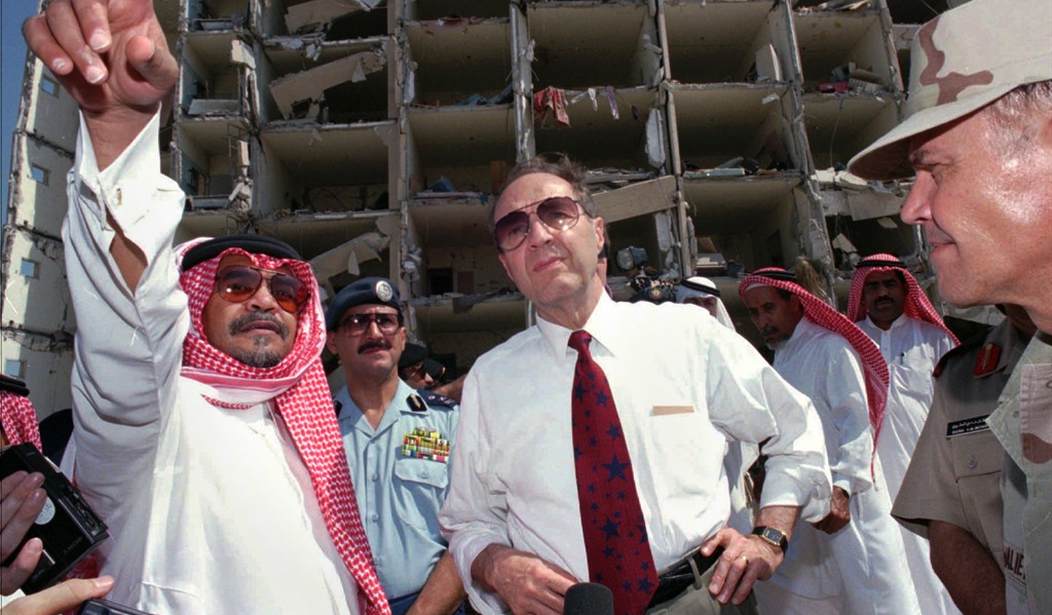Saudi Prince Bandar bin Sultan, one of the most widely recognized and respected Saudi officials in the world, gave a three-part interview to the government-controlled Al Arabiya news network and proceeded to tear down 70 years of myths about the leadership of the Palestinian national movement. Bandar spent 22 years as a Saudi ambassador to the U.S. and is known to speak for the government.
It was an extraordinary series of interviews — a brutal assessment of the numerous self-inflicted wounds by Palestinian leaders going all the way back to the 1930s. It was broadcast in Arabic with English subtitles on a news network that reaches every country in the region. And while Bandar is no longer in the government, a palace spokesman said he was speaking for Crown Prince Mohammed ben Salman.
Bandar began by talking about the Mufti of Jerusalem, the very first Palestinian national leader, who made a deal with the Nazis back in the 1930s and got nothing to show for it.
Bandar goes on to mention a list of similar bad choices and decisions: The Arab rejection of the 1948 United Nations partition plan that would have given the Palestinians a state. The Arab League’s rejection of UN Resolution 242 after the 1967 War that called for an Israeli withdrawal from occupied territories; and the Palestinian Liberation Organization rejection of the Clinton Plan in 2000 that would have given the Palestinians a state in most of the West Bank and Gaza.
The most interesting rejection came in 1979, at Camp David. Israel offered Palestinians autonomy in the occupied territories. Yasir Arafat, turned it down flat. Sixteen years later, Arafat signed the Oslo Accord with Israel. Bandar asked him at the time to compare that deal with the terms he had turned down 16 years earlier. Arafat said that the autonomy offer was “10 times better” than Oslo.
Bandar asked Arafat why he nixed the Camp David peace accord between Menachem Begin and Egyptian President Anwar Sadat. Arafat’s simple answer was that President Assad of Syria would have had him murdered.
The prince’s diatribe against Arafat was only the beginning. His stinging criticism of Palestinian leaders for their obstinancy and hesitations has, he believes, cost the Palestinian people dearly.
Why did he do it?
Prince Bandar is candid about the reasons for his monologue. First, he wants a record of how hard the Saudis have worked on behalf of the Palestinians over the decades. Second, he intends to reassure the UAE and Bahrain, which are being vilified by the Palestinians for recognizing Israel — and any other Arab country contemplating a similar step — that the Saudis have their back.
Third, he is calling out the PLO and Hamas for making alliances with non-Arab countries Turkey and Iran, who the Saudis consider dangerous. He is signaling that the Saudis will deal only with a new generation of pragmatic, moderate and dependable Palestinian partners. About the current leaders, he is candid: “It is difficult to trust them and to do something for the Palestinian cause with them around.”
And in what has to be one of the most significant developments in Middle Eastern diplomacy, Bandar concluded his remarks with a declaration of independence from old obligations. “In my own personal opinion,” he says, “we are at a stage in which, rather than being concerned with how to face the Israeli challenges in order to serve the Palestinian cause, we have to pay attention to our national security and interests.”
The Saudis have seen what happened to UAE when they made their deal with Israel: the shunning by certain Gulf states and the anger of the Palestinian mobs. But they also see Turkey and Iran growing in power and influence and it worries them greatly.
So what now for Israel?
They have certainly watched Prince Bandar’s interview with interest but have so far declined to comment directly.
Instead, a spokesman for the Israeli embassy in London said: “We hope that even more countries will recognise the new reality in the Middle East by joining us on the road to reconciliation.”
Saudi Arabia has traditionally moved slowly and with great caution when it comes to changes of policy, testing each move before committing itself.
With Prince Mohammed ben Salman dragging his country out of the Middle Ages and trying to modernize his society, the pace of change may be accelerating. Bandar’s words and the sentiment behind them is a clear signal to Israel that they are ready to talk seriously about normalization. And that particular earthquake would upend the region and change the world in dramatic ways.










Join the conversation as a VIP Member